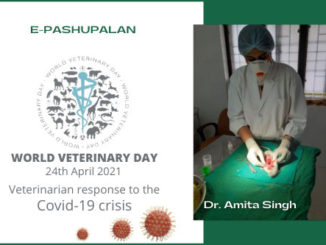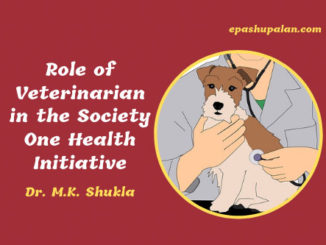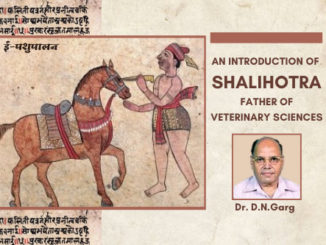The recent pandemic COVID-19 caused by Corona virus, showed that veterinarians occupy an important position in the prevention of new and dangerous diseases that may cause threat to human health. These emerging pathogens have presented challenges for public health experts throughout the world and these challenges becomes even more evident when animals are also being involved. Veterinarians have a crucial role while the country is dealing with such challenges as they help in disease surveillance to identify and prevent disease outbreaks, including zoonotic diseases. They also ensure that people have access to safe food by ensuring that only healthy animals and their products can enter the food supply. Veterinarians provide emergency services to ill and injured animals in animal hospitals, mobile clinics, ambulatory services, zoos, etc. They also play a role in the care of laboratory animals, which are essential for research purposes, including vaccine research against COVID-19.
Impact of Covid-19 on veterinary services
Corona virus is highly contagious and has spread around the world within a short period of time. It has even provoked economic and social interference, which are based on social distancing and the different quarantine concepts implemented throughout the world. Veterinary services are impaired to a great extent, which posed a direct impact on the financial conditions of the professionals.
Role of veterinarian
As veterinarians, it is important for us to ensure that this crisis should not lead to any interfere in veterinary services.
For the control of infectious diseases, veterinarians mainly look after:
- Biosecurity measures to prevent the entry of viruses to animal populations,
- Prevention of zoonotic transmission of pathogen from animal to human, and from animal to animal,
- Surveillance measures to detect infected animals,
- Separation of infected animals from uninfected ones,
- Vaccinating the uninfected animals, and
- Contributing in the development of vaccines and antiviral drugs.
The CDC has issued guidelines on how to protect animals from this virus:
- Social distancing to limit contact with strangers or any other animal.
- If the person is infected or have been exposed to someone who is sick, then they should limit contact with the animals.
- Quarantine the animals in case of exposure with the infected person.
Some actions performed by veterinarians
- Veterinarians have better understanding and experience in managing outbreaks of zoonotic diseases, such as brucellosis, tuberculosis, anthrax, etc. as well as controlling zoonotic pathogens in foods, so, they can help in dealing with the covid-19 pandemic.
- Practises such as isolation and quarantine measures, have helped tremendously during the recent outbreak of corona virus as they constitute the main principles for preventing the entrance and spread of diseases in uninfected animal populations.
- Veterinarians play an important role in wildlife surveillance and so can help in developing preventive strategies by collaborating with the human medical communities.
- Prior knowledge of the etiologic agent, its intrinsic characteristics, and ecology combined with microbiology and immunology can help in the faster development of vaccines and therapy drugs.
- Veterinary epidemiology helps in better disease forecasting.
Health and safety of Veterinarians
The health and safety of the professionals is of paramount importance. Veterinarians must adopt all the important measures of safety such as appropriate level of biosecurity, wear protective personal equipment, use strict hygienic measures and disinfection and sanitization protocols to keep the hospital premises clean and ensure social distancing to protect themselves as well as to safeguard the health of animals and their owners.
Conclusion
Outbreaks of harmful pathogens occur, due to high capacity of zoonotic pathogens to carry out mutation, and also due to improper disease surveillance systems in the country. The role of veterinarians are to be considered essential while the country is dealing with such challenges. Human activities, such as the consumption and sale of wild animals, poor implementation of food security rules, and direct contact with animal reservoirs are being identified as the main risk factors contributing to such outbreaks. All these factors can be controlled with preventive actions from a veterinary perspective.






Be the first to comment